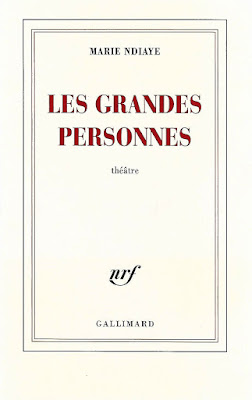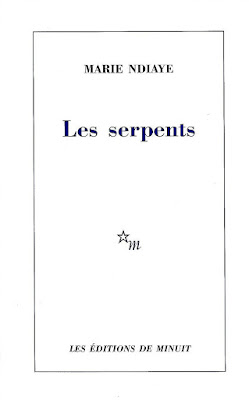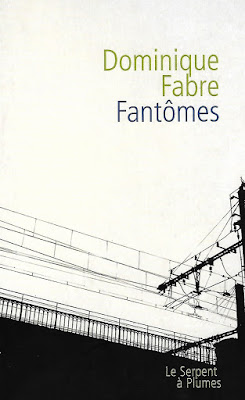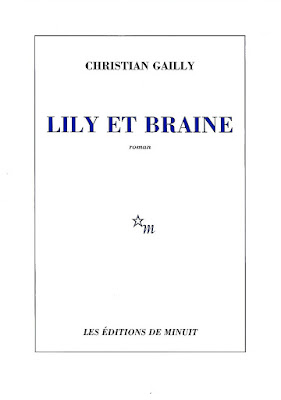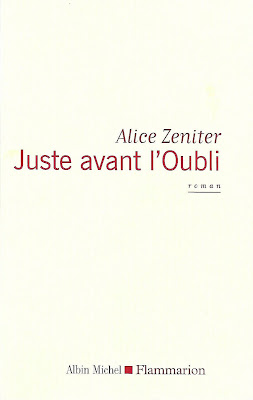Dominique Fabre's Fantômes is of course about visions, although these are the protagonist Edgar's own visions, springs of life in his adolescent world to which he feels he hardly belongs: he doesn't know his father, he lives in boarding school most of the time, and his mother Isabelle (whom he actually calls 'Isabelle') is very much an absentee mother. Fringe areas of Paris, Ménilmontant and Asnières (where his mother lives) are frequently mentioned: Edgar lives on the fringes of himself.
This novel has a first and third person narrator, a 'je' and an Edgar, although the two are physically but not mentally the same: Edgar exists (or in part exists to be more exact) with a kind of double called 'I': reality is a slippery subject, and the two not-quite-the-same narrators are often merged in one sentence. Edgar is often the negative side of the protagonist. The novel is also very autobiographical and some readers (but not me) have previously met the five-year-old Edgar in Ma vie d'Edgar (1989).
Edgar is fourteen going on fifteen, he smokes, has spots of puberty, and wants a girlfriend. He's on the cusp of adulthood, but life isn't treating him well. So his ontological insecurity causes him to invent people, to daydream, imagine that he meets people on the train, such as Aline Soviétique, whom he chats to and kisses goodbye after she's left him her address in Saint-Germain-des-Près: in the heart of Paris, not the fringes. The wildest daydream is with the baker's wife, who makes Edgar lick her breasts, then between her legs, pointing out where her clitoris is and telling him to slow down, and then she comes noisily as the baker himself looks on. The slippages between 'reality' and fantasy happen so subtly that occasionally the reader has to think for a second which world he's in. But then, this is Dominique Fabre.
Before writing this novel, Fabre read the back page of an Henri Calet book, in which Francis Ponge describes Calet as 'boss of the linguistic three-card trick', and Fabre, in an interview for Le Matricule de anges, notes that when you always see the same three-card trick it no longer works, so you have to change the way you cheat. Um.
My other Dominique Fabre post:
–––––––––––––––––––––––––––––––––––
Dominique Fabre: Photos Volées
